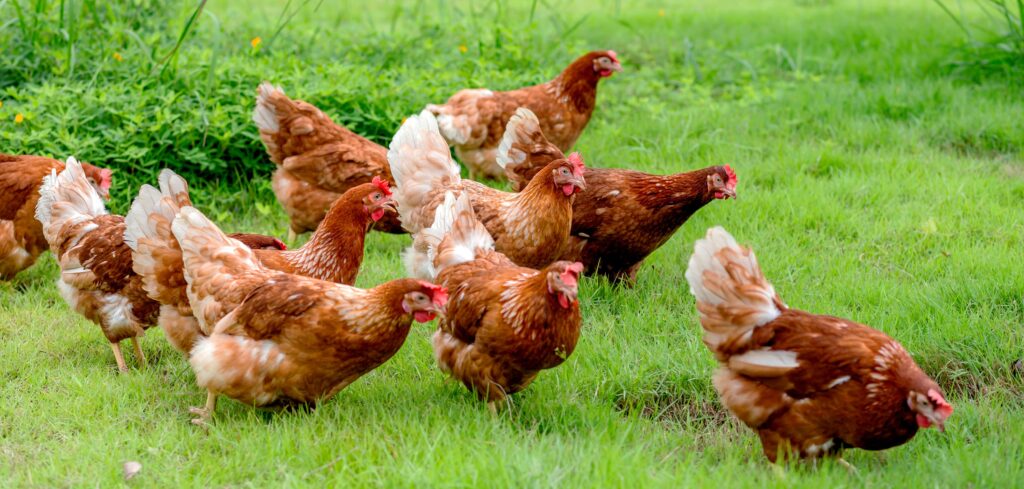Coalition of 75 nonprofits persuades Restaurant Brands International (RBI)
to source 100% cage-free eggs worldwide
(New York, NY – December 9, 2020) – One of the world’s largest restaurant groups, Restaurant Brands International (RBI), owner of leading brands Burger King, Popeyes, and Tim Hortons, today released comprehensive global cage-free policies. This commitment to improving its animal welfare policies occurred within 44 days of the launch of a public campaign by the Open Wing Alliance, a coalition of more than 75 major animal protection organizations.
The new global policy released by Restaurant Brands International (RBI) commits each brand to sourcing 100% cage-free eggs and egg products for every single one of their locations worldwide. This transition will be complete by the end of 2025 for 92% of RBI’s global markets (North America, Western Europe, Latin America, Australia, and New Zealand). The remaining 8% of their markets will be cage-free by 2030. RBI promises to provide annual progress reporting to ensure they meet their deadline and has agreed to translate their commitment into multiple languages.
The public campaign leading up to RBI’s new global commitments lasted 44 days. Thousands of animal advocates from all around the world took part in highly impactful digital actions. One such action was a tweetstorm that resulted in over 24,000 tweets being sent to RBI’s brands in just one day. Activists in Russia, Taiwan, Denmark, Turkey, Sweden, Finland, and Indonesia led socially-distanced in-person actions outside Burger King restaurants. The petition garnered over 268,000 signatures. The international campaign was led by member organizations of the Open Wing Alliance, a global coalition united to improve the welfare of chickens in factory farms worldwide. This global cage-free campaign simultaneously targeting Burger King, Popeyes, and Tim Hortons brought 75 influential animal protection organizations together to demand better from the companies on behalf of its consumers and the egg-laying hens in its global supply chain.
“These commitments made by Restaurant Brands International to exclusively source cage-free eggs in its markets throughout the world will help to meaningfully reduce the suffering of millions of chickens within its global supply chain,” said Alexandria Beck, Director of Open Wing Alliance. “As one of the world’s largest and most influential restaurant groups, this policy reinforces that cage-free will become the new standard for the global restaurant industry.”
The eggs in RBI’s current supply chain come from farms that confine hens in tiny, filthy cages. These cages are so small and packed with birds that the hens can’t do anything that is natural or important to them. Often, their body parts are caught in the caging, which results in fractured or broken bones, deformities, and severe feather loss. Some hens, exhausted or unable to move, are trampled to death by their cage mates. Naturally, when Burger King, Popeyes, and Tim Hortons follow through on their commitments by [2025], this will no longer be the case, and the wellbeing of the chickens in their supply chains will dramatically improve.
A wave of major companies in a variety of industries worldwide are ditching cages, and consumer demand for cage-free eggs is quickly growing. International commitments to end cruel cages are being made by some of the largest companies in the world, including Unilever, Nestle, Aldi, InterContinental Hotels, Sodexo, Mondelez, Compass Group, Shake Shack, Famous Brands, Costa Coffee, and Barilla.
For more information about the Open Wing Alliance, please visit openwingalliance.org.
# # #
About the Open Wing Alliance
The Open Wing Alliance is a global coalition of animal protection organizations focused on creating a unified front in our campaign to end the abuse of chickens worldwide. The alliance was founded in 2016 by The Humane League and has grown into a global force with more than 80 member organizations changing the way the world’s biggest companies treat animals and setting a new standard for corporate animal welfare policies locally—in every major market—and globally.
About The Humane League
The Humane League is a global nonprofit that exists to end the abuse of animals raised for food. Since its founding in 2005, The Humane League has focused on effectively ending the worst abuses in factory farming, securing strong animal welfare commitments from major foodservice providers, restaurants, food manufacturers and hospitality leaders around the world, changing the lives of billions of farm animals suffering everyday.
